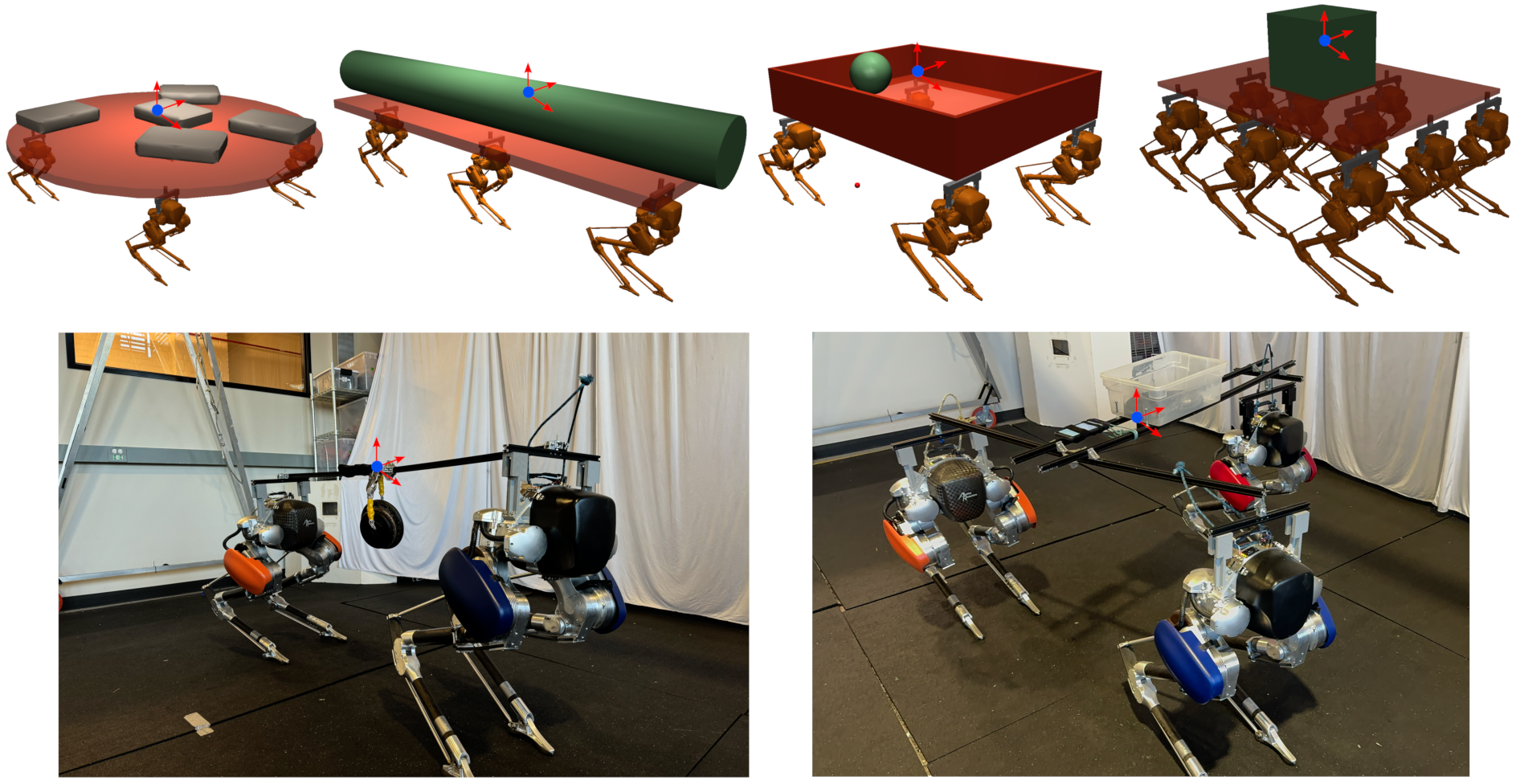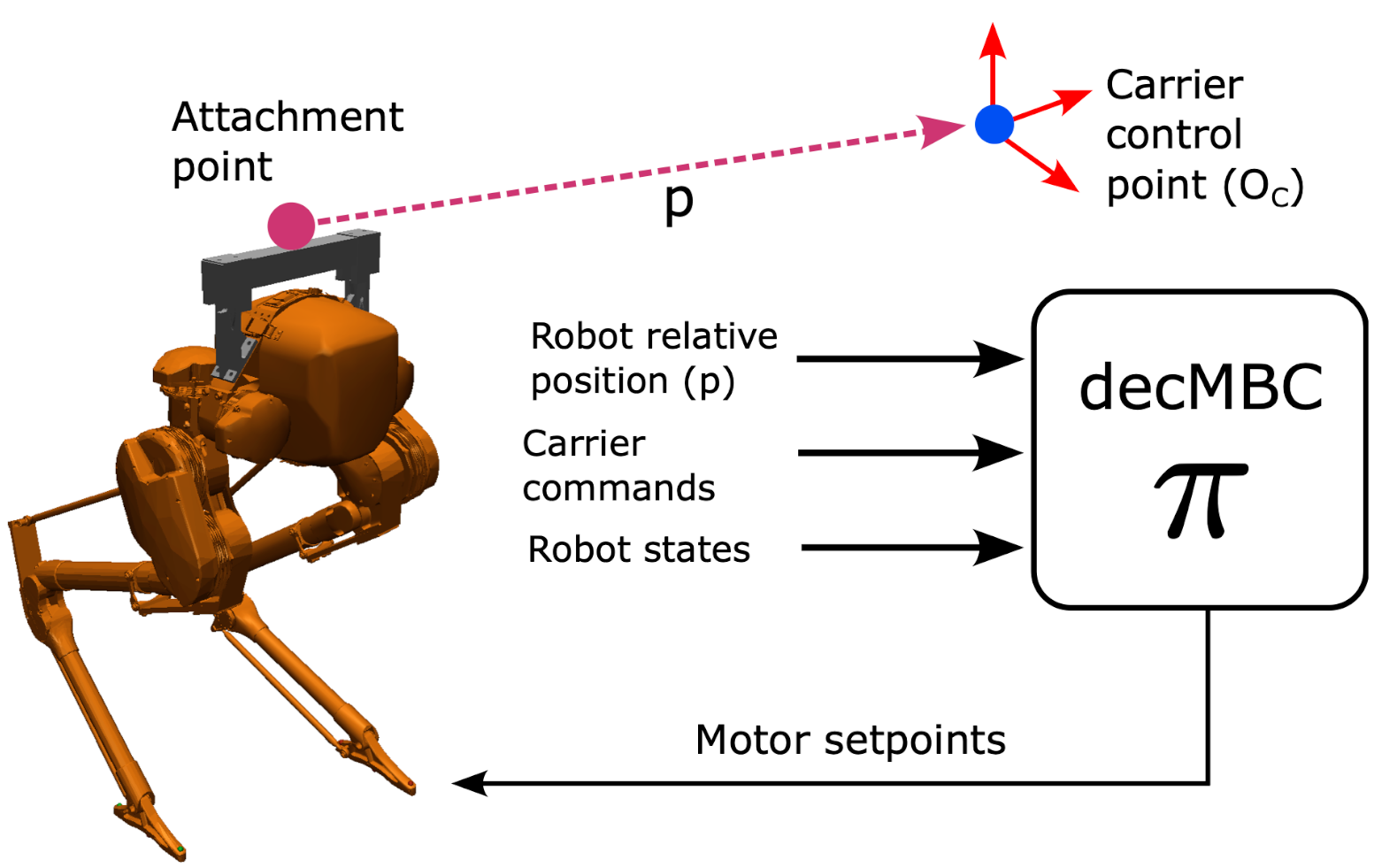Our goal
Our goal is to transport a payload using an arbitrary carrier, which can be commanded about any control point on the carrier.

Payload transport over flat terrain via multi-wheel robot carriers is well-understood, highly effective, and configurable. In this paper, our goal is to provide similar effectiveness and configurability for transport over rough terrain that is more suitable for legs rather than wheels. For this purpose, we consider multi-biped robot carriers, where wheels are replaced by multiple bipedal robots attached to the carrier. Our main contribution is to design a decentralized controller for such systems that can be effectively applied to varying numbers and configurations of rigidly attached bipedal robots without retraining. We present a reinforcement learning approach for training the controller in simulation that supports transfer to the real world. Our experiments in simulation provide quantitative metrics showing the effectiveness of the approach over a wide variety of simulated transport scenarios. In addition, we demonstrate the controller in the real-world for systems composed of two and three Cassie robots. To our knowledge, this is the first example of a scalable multi-biped payload transport system.
Our goal is to transport a payload using an arbitrary carrier, which can be commanded about any control point on the carrier.

We design a decentralized Multi-Biped Controller (decMBC) where:

We train with limited carrier configurations (upto 3 robots) simultaneously by varying carrier control point, robots' relative position, carrier / payload masses.
We test our policy across variety of carrier configurations, with arbitrary number of robots, and various carrier and payload weights.
With additional training on additional terrain types, including stairs, bumps, slopes, and dynamic obstacles, the controller is able traverse a range of challenging terrains. Note that the robots are blind and use only proprioceptive sensory input. Nevertheless they can collectively react to terrain disturbances and collectively recover from instabilities of individual robots.
We test our policy on real robots where same policy is deployed to each of the three robots. We demonstrate maneuverability of the carrier by commanding the carrier to follow different user commands.
We also test the robustness of our policy against disturbances by applying external forces to the carrier. Here, we deploy the same policy to each of the two robots.
We test our policy for two and three robots with various carrier, attachment points for robots, and payload weights.
@misc{pandit2024learningdecentralizedmultibipedcontrol,
title={Learning Decentralized Multi-Biped Control for Payload Transport},
author={Bikram Pandit and Ashutosh Gupta and Mohitvishnu S. Gadde and Addison Johnson and Aayam Kumar Shrestha and Helei Duan and Jeremy Dao and Alan Fern},
year={2024},
eprint={2406.17279},
archivePrefix={arXiv},
primaryClass={cs.RO}
url={https://arxiv.org/abs/2406.17279},
}